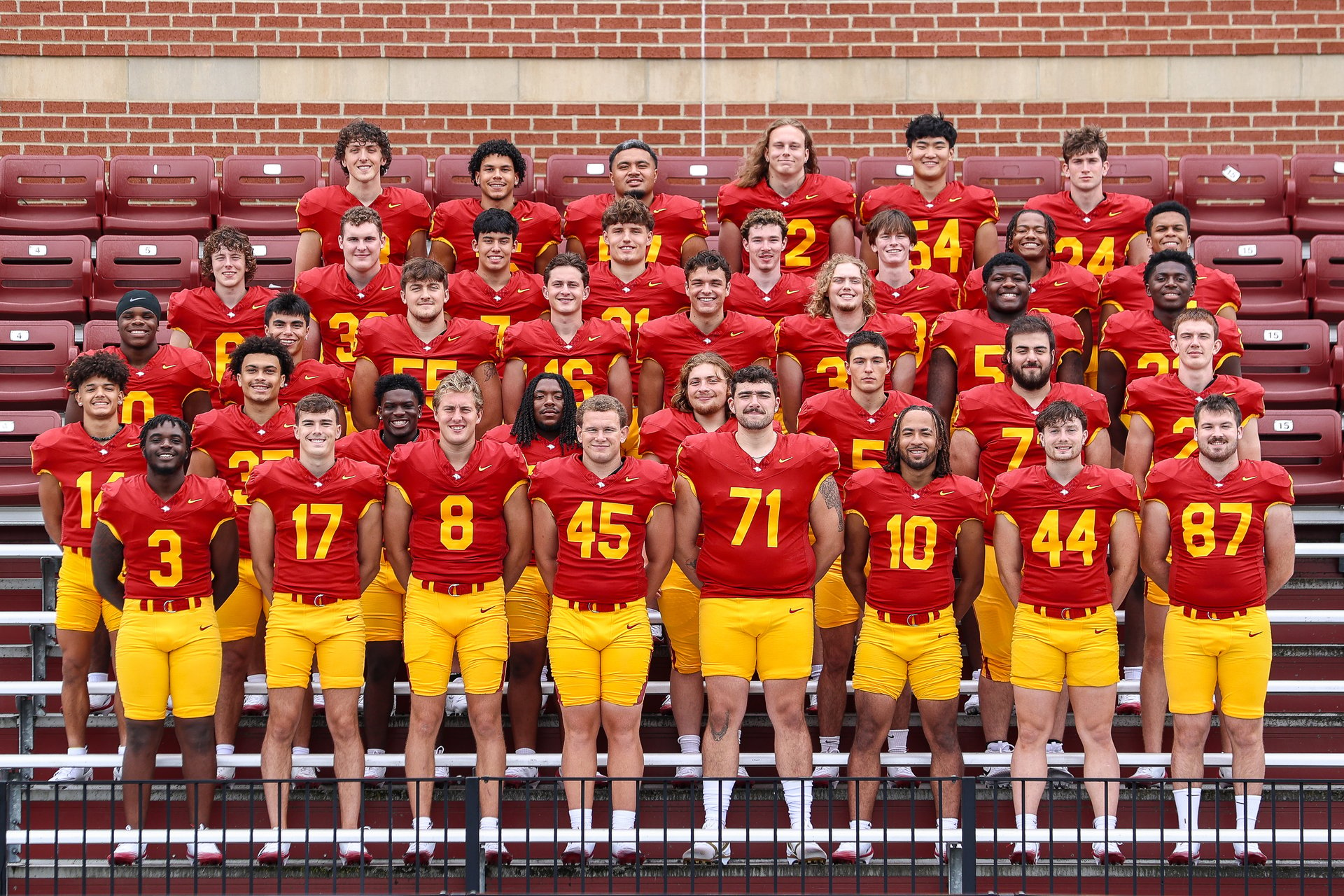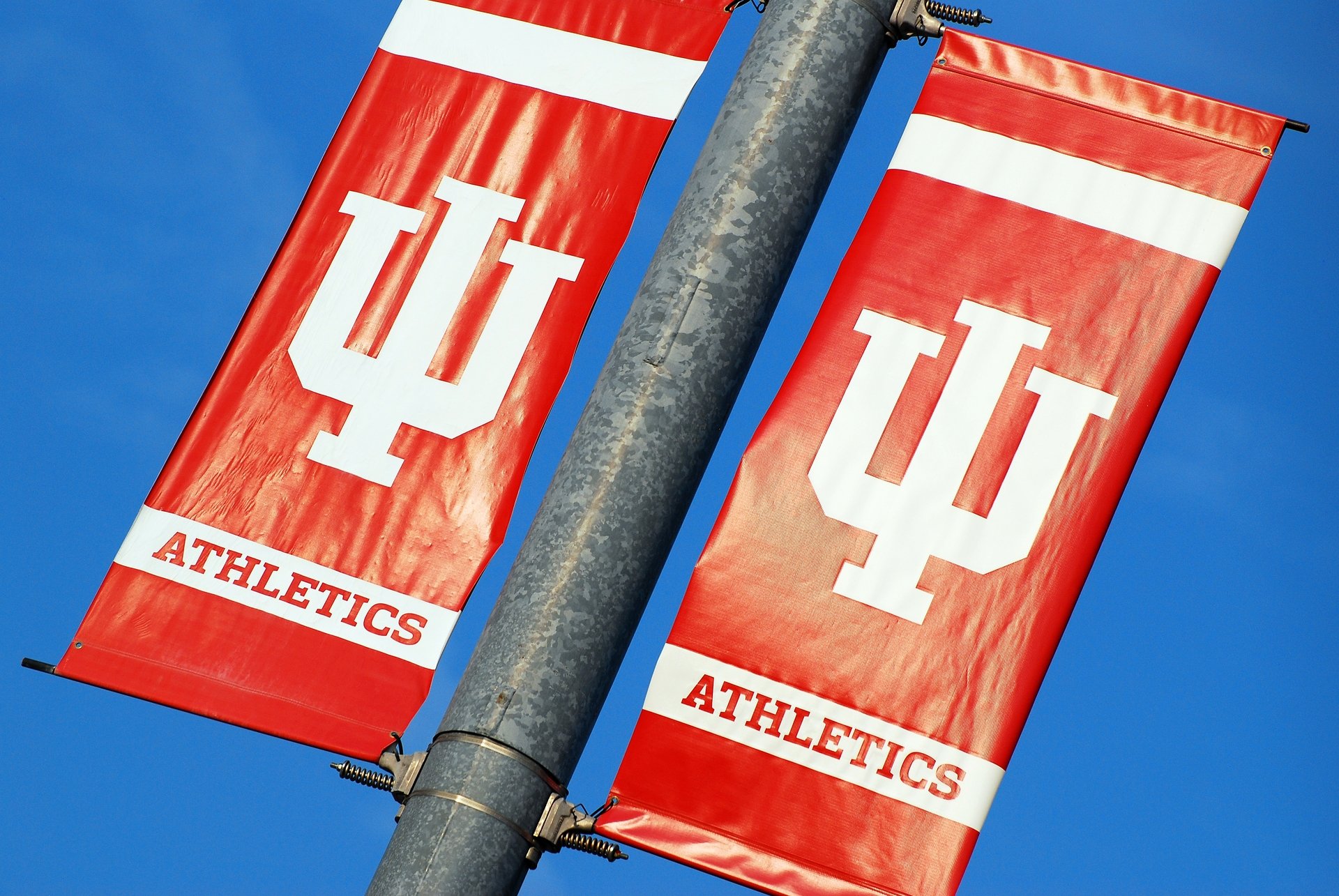Good morning, and thanks for spending part of your day with Extra Points.
Friends, as the calendar turns to November, you’ll notice the air getting crisper. It’s getting dark earlier. The college football regular season is almost over. And you know what that means?
The College Football Playoff is coming? Pffft who cares.
IT MEANS THE EXTRA POINTS BOWL IS COMING SOON.
Just in case you forgot, we’re DOING A BOWL GAME AGAIN THIS YEAR. The Extra Points Bowl, part of the Opendorse Bowl Series, will be on Saturday, Nov. 22, at 6 p.m. ET at the Tom Benson Hall of Fame Stadium in Canton, Ohio.
This game will feature two teams from the NCAC, OAC, PAC and Heartland Conferences. Last season, Westminster College beat Marietta College, 27-13.
Who will make the game this year? Wabash? Denison? Baldwin Wallace? Ohio Northern? Geneva? Westminster? WE DON’T KNOW YET, and we won’t know for a few more weeks, because we need to make sure the game doesn’t produce a regular-season rematch.
We’ll have ticket sale information very soon, but mark the game on your calendars! We’d love to see you there again. And shoot me an email if your company or school would like to be involved in supporting the event! We still have time (but not much!) to set up a few more activations.
Transform Your Health with TruDiagnostic
Take control of your health with the most comprehensive at-home blood test available. TruDiagnostic analyzes over 185 biomarkers from a single finger prick of blood, providing personalized recommendations for the most impactful changes you can make today.
Discover your biological age, understand the pace at which you’re aging, and get a detailed action plan tailored to your body. All from the comfort of home.
On Sunday afternoon, another Power 4 football head coaching job opened up. After a listless, 10-3 defeat by Kentucky in which Auburn managed a paltry 241 total yards, the Tigers fired Hugh Freeze. He didn’t even make it three full seasons.
According to Freeze’s 2022 contract, via the Extra Points Library, the coach will be owed roughly $15.8 million in buyout money, paid out monthly over the duration of his contract (until January 31, 2029). That buyout is not subject to employment offsets.

via the Extra Points Library
I don’t know if anybody is going to weep for the Freeze era at Auburn. As my pal Justin Ferguson notes at the Auburn Observer, Freeze was hired on the basis of his offensive accomplishments of almost a decade ago, rather than because of the way he coaches now. And as my pal Jason Kirk noted when Freeze was hired, there were a lot of reasons that had nothing to do with football to make people not want to root for the guy. Maybe Auburn was unlucky this season, but it’s not hard to see why the fan base turned so quickly and forced the school’s hand.
But Auburn isn’t a one-off. Last week, it was Brian Kelly at LSU. Before that, it was James Franklin at Penn State, Billy Napier at Florida, Sam Pittman at Arkansas, Mike Gundy at Oklahoma State … and the list goes on. As of Sunday evening, there are 12 FBS head coach openings, and some sort of buyout came with all of them.
This wasn’t supposed to keep happening.
The conventional wisdom is that a major reason head coaching salaries (and subsequently, buyout payments) exploded over the past 15 years was because the head coach has an enormous impact on the roster construction and overall success of a college football team. There are only so many facilities schools can improve, and since they couldn’t pay players directly, and all that new TV and MMR money had to go somewhere, it flowed to the coaches.
But now, post-House, programs can pay players directly, and great rosters can overcome all sorts of in-game coaching sins. There are only so many deep-pocketed boosters, and since they can’t be expected to pay for rosters and huge buyouts forever, surely the buyouts and coach salaries would begin to drop as resources are reallocated directly to the players. Right?
That would all make sense! Buuuuut it isn’t really what’s happening.
The Knight Commission has been tracking spending on coach severance payments for the last several years, showing that spending has increased every year since COVID-19, hitting a whopping $120.7 million across FBS in fiscal year 2024.
This growth exceeds even the relatively aggressive projections the Knight Commission modeled in 2023.

We’re going to clear that number in 2025. Comfortably. We were already at $168 million before Auburn canned Freeze, and other major programs (including Kentucky, Wisconsin and Florida State) could add to that number before the end of the season. Hitting $200 million isn’t impossible.
$200 million is about what Florida’s athletic department earns in a season. The entire athletic department. Big-time college football could spend roughly one Florida worth of money on paying coaches to not coach.
How can this happen? Because money isn’t real.
I’ve joked about this concept before in this newsletter and on social media. Money isn’t real is what I tell myself to make myself feel better when I’m about to drop $900 bucks on auto repairs, or another $200 on groceries, or $16 on a cocktail on a rare night out. Sure, that stings, but money isn’t real, so it doesn’t matter, right?
Sadly, for chumps like us, money is very, very real. I cannot pay my mortgage, or for my health insurance or open records fees, with vibes. Those all take cold, hard American currency. If I want to keep paying for the things I need, I need to make sure I’m earning enough money.
Which reminds me, you can subscribe to Extra Points and read every newsletter we publish by pushing that button right there. I know you’ve been putting off for the last few months.
But college athletics lives in a special world, one that isn’t subject to the allegedly ironclad financial rules of the universe.
Every day, I read very smart people who write that the current college athletics financial trajectory is not sustainable. Almost every day, I talk to very smart people on Zoom or on the telephone who say the same thing. Expenses (be they labor or otherwise) cannot possibly continue to grow so quickly, especially relative to actual revenues, without some sort of painful contraction.
But what if they’re wrong? What if there is no market force capable of counterbalancing the political need for ADs and university presidents to make the “right” hire and the desire of fans (and especially about a dozen impossibly rich fans) to spend to ensure a team is successful? What if nobody — not even the governor of Louisiana, or the occasional congressional messaging bill, or the best-intentioned college sports policy advocacy group — can stand up to Jimmy Sexton, Trace Armstrong and the desire to win the next press conference?
Earlier in October, the Knight Commission also released an extensive survey of leaders of Division I universities and athletic departments. It reported that a whopping 80 percent of university presidents and chancellors had expressed that “D-I is headed in a negative direction,” with nearly that many (79 percent) expressing concern about their athletic department’s “future reliance on institutional funds and student fees to balance budgets.”
Sure, I understand that pessimism. I suspect much of it is grounded in the idea that the line can’t possibly go up forever, and that without structural changes, a spending crash could meaningfully damage the entire college sports ecosystem. I don’t need to be a CPA to look at the numbers from MFRS reports and reach a similar conclusion.
But I’ve been writing about college sports as a full-time job since 2012, and I think I’ve written variations of this column at least a dozen times since then. That was five TV contracts ago, before COVID-19, before Alston, before House, before all sorts of other massive changes.
What if the supply of huge donor money — not regular-season ticket deposits and $500-a-year checks from normal families, but huge money — is mostly divorced from what we might describe as conventional market forces? What if, somewhere, there’s always another rich guy who is willing to cut the right check and keep this whole thing going?
What if the proverbial crash is 30 years away, if ever?
It’s at least possible, right? And hey, if they run out of rich individuals, I guess leagues will eventually just raise that sweet sweet private capital money, so some pension fund or private equity firm can pick up the check when it’s time to fire whatever hot name gets hired in the next five weeks.
Does that make sense? No. Is it sound policy? Probably not. Is it the distribution of capital that provides maximum social utility? Of course not.
But if money isn’t real, then it all works out.
You know what IS real, by the way? Our little quiz game, WHO’S THAT FOOTBALL TEAM? Over the weekend, I added support for Division II and Division III teams, fixed a few bugs and added more than 100 new clues. Check it out! I’d love to hear what you think.


















